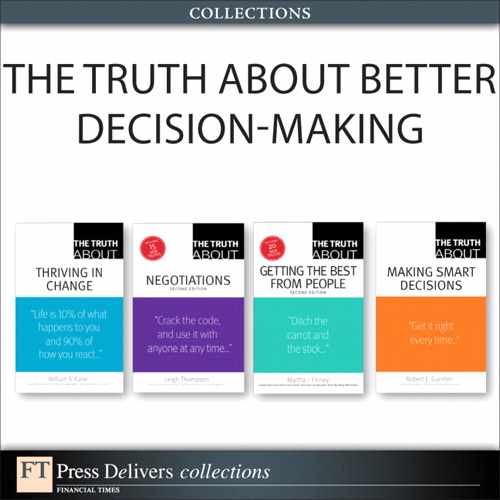Truth 3. Your industry is unique (and other myths)
Contrary to popular thought, the basic structure of negotiation does not differ that much across different industries.
Myth #1: Your industry is unique
No matter what the industry, negotiators have specific issues that are important to them. For example, a home buyer might focus on price, closing date, and financing terms. A sales manager might focus on price, volume, and rebates. The key thing for both of these negotiators is not the nuances of how closing dates and royalty rates work but rather the fact that they both care about certain issues and may or may not be willing to make concessions in regard to them. Similarly, both a home buyer and a sales manager might have a “bottom line” and might be inclined to make threats. The parallels between negotiations in different industries far outnumber any differences.
Here’s an analogy. Suppose your child said, “I really want to learn how to play card games, and I need to know ‘card math.’ Can you teach me?” Later that evening, your child says, “Can you please teach me basketball math to figure out players’ stats?” Then at bedtime, “I have to figure out how to do candy math so when I buy candy I can count the change.”
You’d probably say, “I have good news: There’s no difference between card math, basketball math, and candy math. For that matter, there’s no difference between grocery store math, checkbook math, and dessert math. Math is math. There are certain key rules and operators you can use whether you’re playing poker, analyzing basketball stats, or buying lollipops. Once you know the rules, you can use them anywhere.”
You can use the same principles to negotiate with a loan officer that you can with a colleague or spouse.
Negotiation is negotiation. Scientific principles apply to all of life’s negotiations, from the most intimate to the most economic. In other words, you can use the same principles to negotiate with a loan officer that you can with a colleague or spouse.
The fact that all negotiations (whether with nannies or Wall Street financiers) have predictable parallels is good news. Why? It means there’s a science to negotiation, and once we crack the code, we can use our skills any time with anyone.
There’s a science to negotiation, and once we crack the code, we can use our skills any time with anyone.
Also, you may begin a career in consulting, change to insurance, and then end up in the public sector. Because of the parallels among negotiation types, you won’t have to reinvent yourself each time—at least as a negotiator.
There are three more myths I want to clear up so that we’re on the same page.
Myth #2: Business people care only about money
This is false. Business people seek to maximize their utility. So do professors, students, home buyers, parents, children, spouses, and professional wrestlers. Your utility is not your money. Your utility represents your overall satisfaction with a particular situation. When I negotiate with my child or someone else I care about, I want him to be happy, too. So his happiness is part of my utility, and in my negotiations with him, I am seeking to maximize my utility, which includes my welfare and his. Excellent salespeople know that customers are valuable, so part of their own utility is pleasing the customer.
Myth #3: Always maintain a poker face: Never reveal anything
This is false, too. Negotiators who fail to reveal anything are doomed to lose–lose agreements.
Myth #4: Never make the first offer
Again, this one’s false. There isn’t a single published scientific investigation that supports this advice in any way. I challenge you to find any scientific evidence that does. In fact, many studies support the wisdom of making the first offer.
